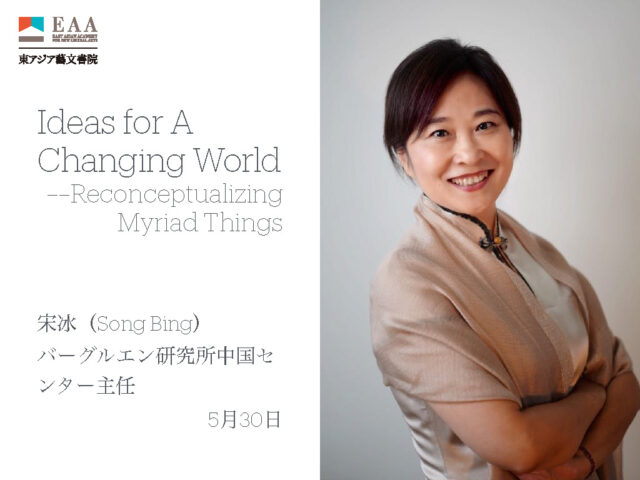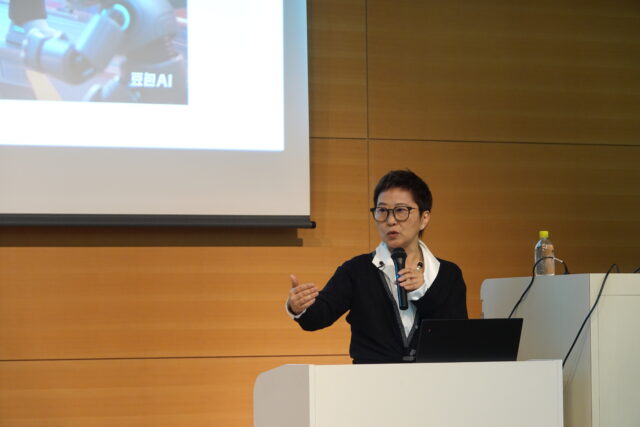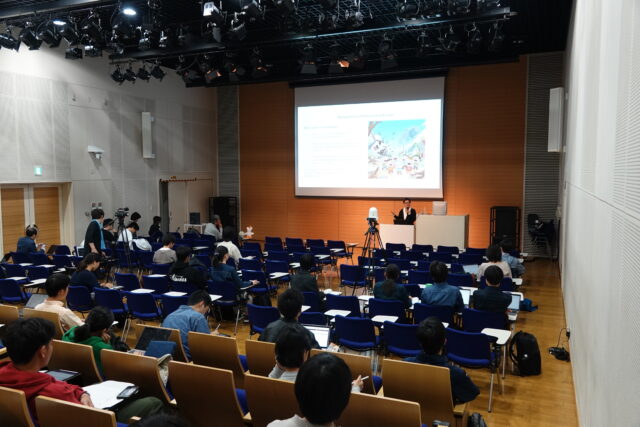
On May 30, 2025, the seventh lecture of the 2025 Academic Frontier Lecture Series titled “Toward the World 30 Years from Now — The Changing Kyoyo, the Changeable Kyoyo” was held. Prof. Bing Song, Senior Vice President of the Berggruen Institute and Director of the Institute’s China Center, delivered a lecture titled “Ideas for a Changing World— Reconceptualizing Myriad Things.”
The Berggruen Institute is presently conducting projects that explore AI using the concepts of Eastern philosophy. In this lecture, Prof. Song discussed how we can better understand AI and how we can co-become with it, introducing the concept of “things (Wu)” from traditional Chinese philosophy.

Many people now see AI as a threat because AI technology has developed at an incredible speed in recent years. However, Prof. Song argued that it is not productive to simply fear AI. She suggested that AI reflects the human mind because it is designed to model how the human brain works. In other words, our views on questions such as “What does it mean to be human?” and “what makes this world the way it is?” inform and shape AI systems. AI is a mirror of us. Prof. Song thinks that we can understand our own worldviews and human views through AI. Therefore, she believes that by recognizing our existing views, we can reconceptualize our views of humanity and the world.

Prof. Song also discussed the relationship between “humans” and “things.” In Western philosophy, it is common to distinguish “humans” from “non-human others.” On the other hand, in Eastern philosophy, “humans (Ren)” and “things (Wu)” are thought to be generated from the same origin, all things are in metaphysical oneness, and humans are just positioned as one of the “things (Wu).” From this perspective, it is possible to view AI as a “thing (Wu),” and humans and AI can interact and co-evolve. Prof. Song emphasized that by rethinking AI in terms of the relationship between “humans (Ren)” and “things (Wu)” and seeing AI as a reflection of humans, we can open a path to co-become with AI.
Report by Konomi Niimoto (EAA Research Assistant)








